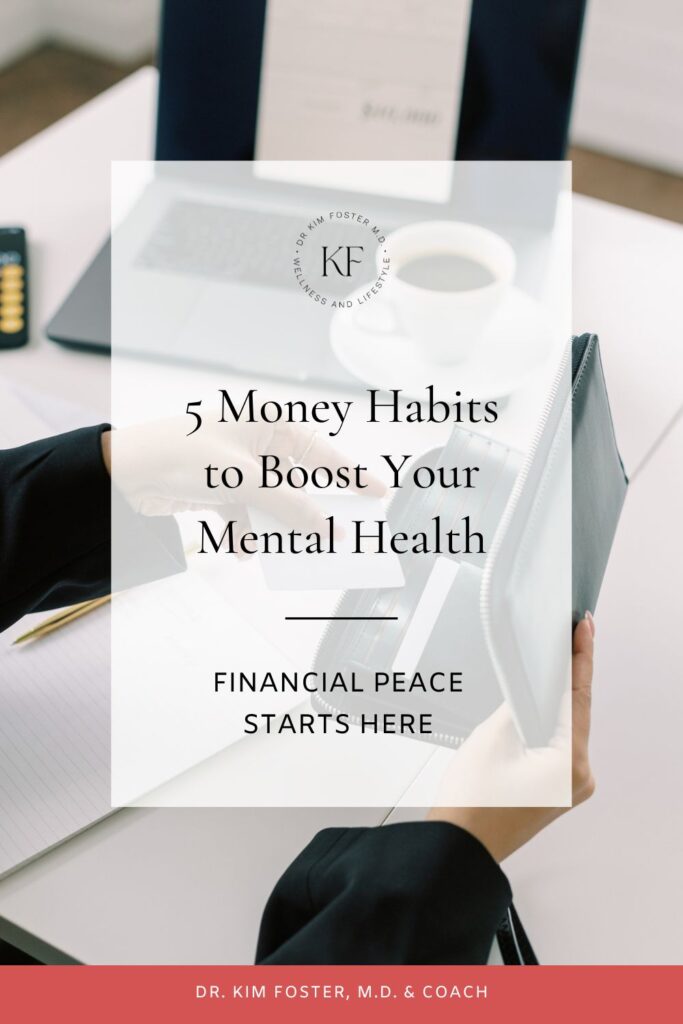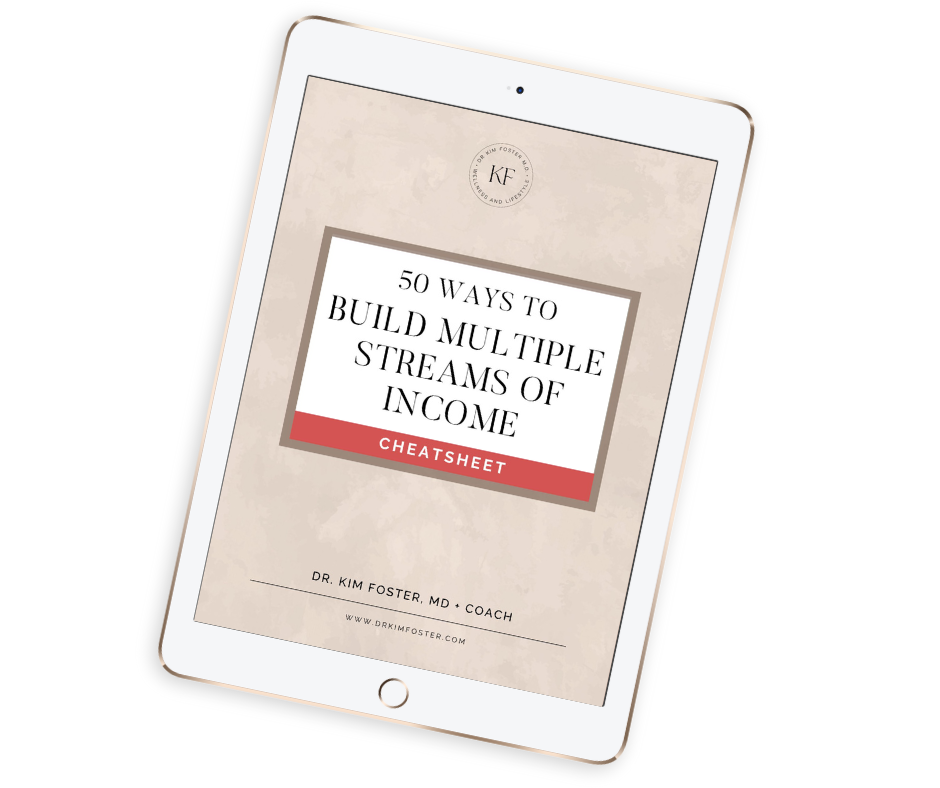Have you ever noticed how your stress skyrockets when your bank balance dips?
It’s not just you. Money and mental health are deeply connected, yet most people don’t realize how their financial habits influence their mood, stress levels, and overall well-being.
Here’s something that might surprise you: The key to overcoming money stress is NOT earning six figures. Rather, it’s shifting your approach to money and your mindset around it.
It’s not as complicated as it sounds. And to prove it, I’ve got five small changes that will help you better manage your money and feel more secure, confident, and in control of your life.
1. Redefine Your Relationship with Money
Many of us grow up with limiting beliefs about money. Maybe you’ve heard things like, “Money doesn’t grow on trees” or “Rich people are greedy.”
These beliefs shape how we feel about earning, spending, and saving money. They create guilt and anxiety and hold us back from achieving financial security.
Morgan Housel, author of The Psychology of Money, explains that your financial behavior is less about knowledge and more about your mindset and emotions.
So, the first habit is identifying your limiting beliefs around money and challenging them.
Let me share a personal example.
When I was working as a family doctor and thinking about starting my own business, I discovered I had a lot of money stories that were holding me back.
Growing up, I was told that the (only) way to make money was to get a job. No one told me it was possible to earn a living working for yourself, so naturally, I struggled to believe this was possible for me.
When I identified this limiting belief, I challenged it by reframing it into a positive affirmation. Every day, I would write in my journal – “I have the power to create my own opportunities and build wealth on my own terms.”
So now it’s your turn – Write down your biggest limiting belief about money and reframe it into something positive.
2. Create a ‘Peace of Mind’ Fund
Unexpected expenses have a way of showing up at the worst possible time. Your car breaks down, your pet gets sick, or the fridge suddenly stops working.
Life doesn’t give us a heads-up on these things, and if we don’t have money put aside for them, we are left feeling extremely anxious and stressed.
But the truth is, so many of us do find ourselves in this situation.
Research from the Federal Reserve found that 40% of Americans wouldn’t be able to cover a $400 emergency without borrowing or selling something.
That’s why I believe having a ‘peace of mind’ fund, more commonly known as an emergency fund, is crucial. This fund doesn’t have to be huge, nor do you have to put half your monthly income into it.
Set a realistic and achievable goal, such as saving $500. If you put $20 a week into the fund, you’ll reach your target in 6 months. And then, next time something unexpected happens, you’ll be prepared!
3. Practice Gratitude for What You Have
Financial stress often stems from focusing on what you don’t have. It’s easy to scroll through social media and think, “Why don’t I have a bigger house?” or “I wish I could afford a vacation to the Maldives.”
However, that comparison trap doesn’t serve us. It just makes us anxious and frustrated.
The way to break free from the scarcity cycle isn’t wishing and wanting for more. Instead, it’s focusing on what you already have.
Research from the Journal of Happiness Studies shows that practicing gratitude reduces anxiety and depression by increasing feelings of contentment. Simply put, when you acknowledge what’s already working in your financial life, you start to feel more secure and in control.
Here’s a simple exercise you can do to start cultivating an attitude of gratitude:
Write down one thing you’re grateful for about your financial situation every day. It could be as small as “I’m grateful I can cover my rent this month” or “I’m grateful that my fridge is full of groceries.”
At first, it might feel a little fake or cheesy, but as science shows, gratitude works, and it’s one of the simplest things we can do to cultivate a better mindset and financial situation.
4. Spend on What Aligns with Your Values
How often have you bought something on impulse only to regret it later?
This guilt and regret we feel from spending happens when our purchases don’t align with our priorities and values.
However, we can put a stop to impulse buying and regain control of our spending by getting clear on our values and priorities and ensuring that EVERY purchase we make aligns with at least one of them.
Here’s how:
Identify and write down your top three values, such as family, health, or creativity. Save this list in your phone’s notes.
Then, before making any (non-essential) purchase, refer to your values list and ask: “Does this purchase align with my values?”
If the answer is no, reconsider it. Trust me, your wallet and your future self will thank you for cultivating this money habit!
5. Focus on Avoiding Regret, Not Keeping Up
One of the biggest sources of financial stress is the pressure to keep up with others. Social media and societal expectations make it easy to fall into the comparison trap, leading to impulsive spending.
But let’s be honest – does it matter if your neighbor just bought a Tesla? At the end of the day, other people’s financial choices have nothing to do with YOUR long-term happiness.
Instead of chasing status or worrying about how you look to others, focus on making intentional decisions that align with your goals. Because the truth is, staying true to your needs will bring you far greater satisfaction than keeping up with others.
Here’s a simple mindset shift to help you do this:
Before making any financial decision, ask yourself, “A year from now, will I regret spending or not spending this money?”
If you start letting this question guide your choices, you’ll be amazed at how much clarity and peace it brings to your life.
Final Thoughts
Want to dive deeper into these five money habits?
Then check out the full episode on YouTube:
And if you’re looking for ways to increase your income, download my FREE guide: 50 Ways To Create Multiple Streams Of Income.
I’d love to know which of these habits you will start today. Drop a comment below and let me know!
Resources:
- My FREE PDF Guide: 50 Ways To Build Multiple Streams Of Income
- My Goal-Setting Planner – The WellPlanned Method™
- My Free Class for Health Coaches: How To Build A 6-Figure Health Coaching Business Using One Signature Program
- Dr. Kim on Instagram: https://www.instagram.com/drkimfoster/

FREE CLASS!
Looking to take your wellness journey to the next level?
The 3 Secrets For Stepping Into A Meaningful New Career Without Wasting Time Or Money
- find out why health & wellness coaching is a skyrocketing industry that can provide the freedom and fulfillment you’ve been craving
- discover the 3 biggest myths about health & wellness coaching that will hold you back (and what the truth is instead)
- learn the secret sauce for getting amazing results for your clients (and building a profitable business as a wellness coach)
…and more!








